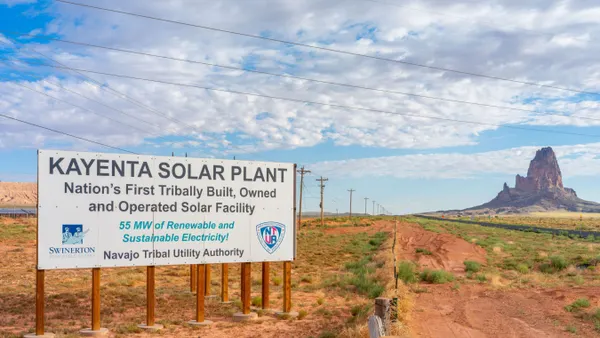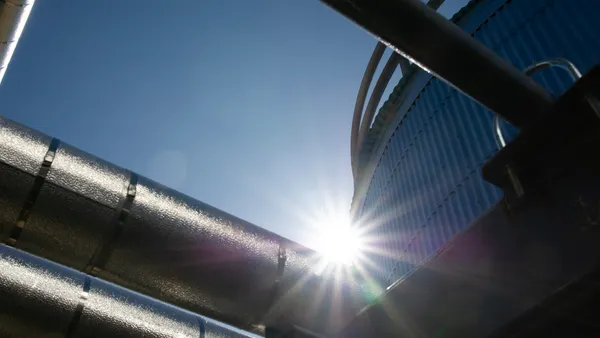Dive Brief:
- The Mississippi Public Service Commission has extended the comment period regarding proposed net metering rules, and it is unclear when a vote will be taken, the Associated Press reports.
- Mississippi is one of five states with no net metering policy, and has been struggling with the issue since 2011.
- A proposed rule would cap net metering participation at 3%, though utilities want a more stringent limit; a study completed last year showed the state's residents would benefit under almost any net metering scenario.
Dive Insight:
Mississippi has long grappled with a policy that fairly compensates homeowners with solar panels and how many should be installed.
But after a two-hour public meeting earlier this week, the state doesn't appear much closer to making a decision on its net metering policy. It is a familiar debate, with solar advocates lobbying for no cap and utilities pressing for a 0.5% limit. The proposed rule suggests a 0.3% limit. Utilities also claim rooftop solar users don't pay their fair share to maintain the grid, unfairly burdening non-rooftop users with the cost.
"The reality is what is being decided is how much customers without distributed generation will pay customers with distributed generation," South Mississippi Electric Power Association attorney Christa Bishop said during the hearing.
A study completed last year by Synapse Energy Economics found net metering would benefit the state's consumers in almost every scenario -- though utilities say that low-income customers may wind up subsidizing those with solar panels.
Synapse concluded distributed solar would help Mississippi avoid significant infrastructure investments, take pressure off the state's oil and gas peaking resources, and put downward pressure on rates.
But the report also warned that under 0.5% penetration, distributed solar would decrease revenues for the state's utilities, especially because net metering participants would need to be compensated at a rate beyond the variable retail rate in order to finance solar installations. Synapse's analysis recommended the state consider alternatives, including a Value of Solar Tariff.














